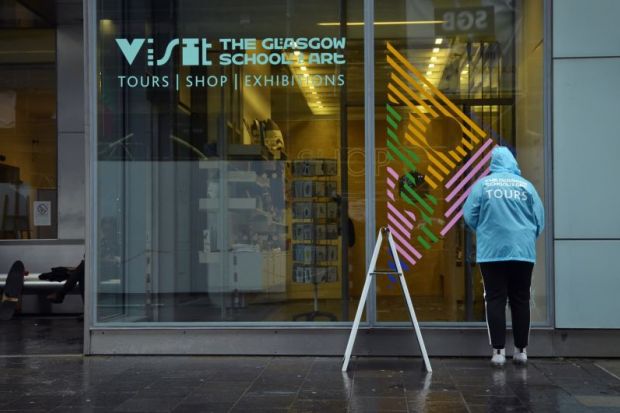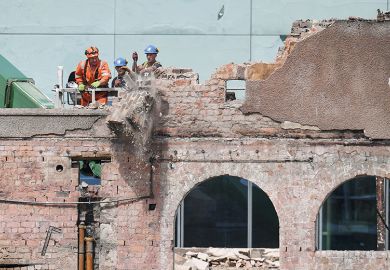The UK’s higher education watchdog has reprimanded the Glasgow School of Art for failing to meet sector expectations on how it manages its academic standards.
In a report published on 9 April, the Quality Assurance Agency (QAA) says that the institution’s “arrangements for managing academic standards and the student learning experience” are of limited effectiveness.
The QAA says students had complained about communication and feedback from the institution, particularly in the wake of institutional disruption. In 2018, its celebrated Mackintosh building suffered a second fire, following the 2014 fire in the same building.
This included lack of information about the relocation of the School of Fine Art after the fire, students often having an essay due a few days after a studio submission or students being expected to continue developing work without feedback, the report says.
Access to studio space is also highlighted as a “challenging” area: students said that when they arrived on campus their expectations about studio access and resources “are higher than the reality”.
The report recommends that resources be made available “to support students in achieving learning outcomes are effective and equitable” and that the amount of studio availability and technical support should be made clear before students arrive.
Students complained to the QAA that they had not received clear communication about how they would be assessed after the disruption caused by the pandemic, while other students said that there “did not appear to have been an attempt to adapt the curriculum to an online format and that no attempt had been made to change the delivery methods used by staff”, the report says.
Given the ongoing impact of the pandemic, the report calls for the institution develop an approach to delivering alternative assessments, particularly for studio-based courses, that can be used online if necessary.
The report notes that staff said “at times, there can be a lack of an institution-wide approach to issues” and the QAA recommends “greater consistency” across the school.
However, the institution is commended for its commitment to widening access and student support services, as well as its efforts to decolonise the curriculum and its digital inclusion strategy.
The institution must “develop a culture where students are seen as equal partners, engaged individually and collectively in the development and enhancement of their educational experience,” the QAA says. The institution should ensure oversight and responsibility on matters of strategic priority are effective, “avoiding over-reliance on individuals”.
The QAA will now monitor the school on a quarterly basis to monitor progress made and will then conduct another review, probably in 2022.
Penny Macbeth, director of the GSA, said that senior leaders “clearly have some challenging issues to address and we will be working through them systematically and with rigour”.
“Addressing the areas where we are weak will require that we work together across the whole of GSA to ensure that we deliver a consistently excellent experience for all of our students,” Professor Macbeth said. “We are committed to doing this and to working with the QAA and others to make sure we provide the best creative education and high-level art school experience for our students.”
Register to continue
Why register?
- Registration is free and only takes a moment
- Once registered, you can read 3 articles a month
- Sign up for our newsletter
Subscribe
Or subscribe for unlimited access to:
- Unlimited access to news, views, insights & reviews
- Digital editions
- Digital access to THE’s university and college rankings analysis
Already registered or a current subscriber?







